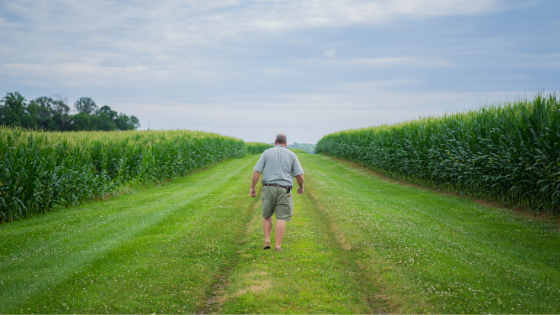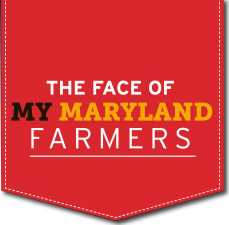One Maryland company is finding a new way to reuse “litter” from poultry farms. And, it’s not the type of litter you’d find on the side of the road. Poultry litter contains manure, spilled feed, feathers, and bedding, like wood shavings, that chickens roam around on in chicken houses.
Planet Found Energy Development (PFED) in Pocomoke City developed a line of products, called Element Soil®, to provide an alternative use for poultry litter. This new soil conditioner and potting soil line is engineered from biologically treated poultry litter. Poultry litter, anorganic natural plant food, is rich in nutrients and micronutrients that promotes soil health while producing strong, healthy crops.
Element Soil® is produced from an anaerobic digestion and nutrient recovery facility at Millennium Farm in Pocomoke City. The facility processes poultry litter generated from poultry farms to create renewable natural gas and fertile, odor-free soil conditioners. For every bag of Element Soil’s Annemessex or Pocomoke Blends, an average of 5.9 kilowatts of renewable energy is produced and 0.1 pounds of phosphorus is prevented from running into the Chesapeake Bay and surrounding water bodies.
In addition to these environmental benefits, this product is helping Maryland farmers by providing alternatives. The Phosphorus Management Tool, signed into law by Governor Hogan in 2015, seeks to uphold grain farmers to continue to responsibly manage agricultural phosphorus application to fields in Maryland. As a result of these increasingly stringent regulations, grain farmers work closely with their nutrient management advisor to provide their fields with the appropriate nutrients for the coming growing season, while poultry farmers benefit from manure removal. Grain farmers, who currently take advantage of this locally produced organic slow-release plant food, financially save money by limiting their commercial fertilizer input. By providing poultry farmers an alternative destination for their litter, PFED hopes to use its processes and its new line to simultaneously support local farmers and provide a tangible benefit to the environment in the Chesapeake Bay region.
The new app Littr. is a useful tool being used by poultry growers and other farmers to help reuse more litter. Developed by the Delmarva Chicken Association (DCA), the app helps poultry growers sell their litter, and other farmers can find where to purchase it. There’s even folks who provide services, like hauling and fertilizer application. “In its first few weeks, Littr. has gathered more than 150 registered users, and it’s already smoothed the way for recent farmer-to-farmer litter transactions on Delmarva. It’s exciting to know this tool is already making a difference in the agriculture community. As its user base grows, it will help all of us meet the goals of protecting natural resources while aiding farmers’ bottom lines,” says James Fisher, DCA communications manager.
“Litter management is a really important part of a chicken grower’s work, because handling litter correctly is a crucial part of any grower’s nutrient management plan. For chicken growers who don’t grow crops, or growers who just don’t need all their own litter for their own crop fields, the Littr. app is a new way to connect with others in farming who very much want to use chicken litter as a locally produced, organic, slow-release plant food but don’t have a source for it yet,” says Jenny Rhodes of Deerfield Farm in Queen Anne’s County.
Jonathan Quinn from Cecil County’s Little Bohemia Creek Farms is very optimistic about the new app. “The Littr. app is a good thing. It’s something we’ve been needing. In the past, tracking was done by word of mouth. The app provides farmers a resource to reach out to other farmers and connect with the product,” he says.
The Maryland Department of Agriculture (MDA) is also encouraging farmers to consider switching to poultry litter as a fertilizer. “Poultry litter is packed with nutrients and makes an excellent alternative to commercial fertilizer,” said Secretary Joe Bartenfelder. “I encourage anyone growing grains, hay, or organic crops to contact the department’s Manure Transport Program and learn more about how you can benefit from switching to poultry litter.”
You can do your part, too, while enriching your garden. You can purchase Element Soil® products online at elementsoil.com or at How Sweet It Is in Fruitland and Johnson Seed and Feed in Salisbury.
Hungry for more? Learn about Planet Found Energy Development (PFED) and how they are working to develop manure management technologies that help the region. Find out more about grain farmers and poultry farmers in Maryland. You can follow DCA and Maryland Grain out on social media for stories about the family farmers who raise chickens and grain on the Eastern Shore.
Sign up for our newsletter and find us on Facebook, Twitter, and Instagram.


